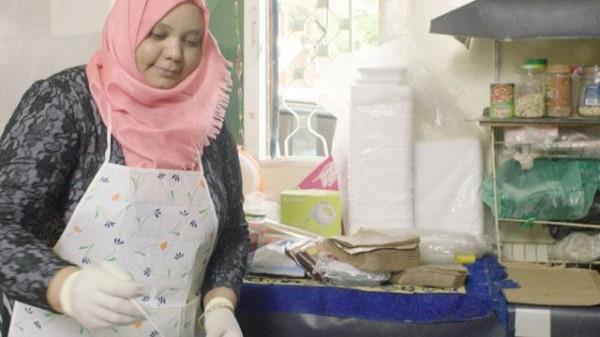
Turning tomatoes into money: Ghor Safi women's innovative food business
The homemade sauces came from an idea by Dalal Obaid, a local resident who realised in 2017 the agricultural potential of her area.
"When I returned to Jordan after my studies in India, I noticed the overflow of some food products like tomatoes and cucumbers in the market which led to a sharp decrease in selling prices. That made me realise that we could create some innovative items from them to boost the producers' revenues," Obaid recounted, noting that "this was also a way to help local producers further support their families".The project includes 44 women who prepare products that include dried tomatoes, pastries, desserts and low-salt pickles in their own kitchens, Obaid, who had been working in the exports and management field at a consulting firm for 15 years, explained
"I knew that motivation was not enough and that I needed to design an organised, systematic and specialised work formula," she remembered, adding that she decided to start a professional training programme that would help local women start "on sound and solid ground". To fund the training, she applied to the USAID Jordan Local Enterprise Support Project grant programme that aims to support home-based businesses in local communities."For me it was about tackling the specific problem of turning tomato surplus into a product that can generate customer demand, therefore turning a cheap item into a valuable product in the market," the young entrepreneur recalled.
In 2017, Obaid launched her training programme and the women of Ghor Safi started receiving courses in food safety and hygiene where they were acquainted with the highest international quality standards.A year later, they began producing their innovative line of tomato sauce and pesto, offering a much more valuable product on the local market.
"Pesto is produced by drying the tomatoes, frying them and softening them before adding nuts, olive oil and garlic. They then become a paste that you can add to your salads, meat or chicken to give it a wonderful flavour," Obaid, who is leading the initiative alongside the Al Etizan Consulting team, told The Jordan Times.For its part, the ground tomato sauce is made from grinding the dried tomatoes and adding dry garlic, dry onion and dried mint along with rosemary, she continued, noting that is a "great alternative to regular tomato sauce".
"The advantage of these grated and dried products is that their taste is more enhanced," the entrepreneur stressed, pointing out that farmers and community members are the first tasters of the products, monitoring and constantly improving their sauces' concentration and flavours."Despite the short period of time since we have started our project, individuals and families in Ghor Al Safi have already been able to see the difference," Obaid said, highlighting that women's husbands have been the biggest supporters of the project, as well as local farmers collaborating with them by providing the fresh vegetables they need.
Fayzeh Mashaaleh and her husband Ibrahim and two of the beneficiaries of the project, who increased their family income since Fayzeh started working with Obaid."The work of the women in the area really improved thanks to the training they took with Dalal, especially the food safety and hygiene courses," said Ibrahim, noting "this creative and unprecedented idea enabled us to benefit from the surplus of the tomato crop and opened various production lines for the local citizens to feel the difference in terms of income."
'The advantage of the project is that the products these women manufacture in their kitchens have greatly increased the value of the surplus products we used to have in the area,' the entrepreneur explained, elaborating 'for example, one kilo of tomatoes is sold for about 30 piasters. Instead of selling the surplus fresh tomatoes at such a low price, the women dry the tomatoes and transform them into pestos and other sauces. This means that now they can sell a kilo for JD3, which generates much more revenues for them, and therefore more income for their families.'The Mashaaleh couple thanked Obaid for her "pioneering idea", noting that "all of the beneficiaries are extremely grateful for what she did". "I am so happy and proud to be part of this project," said Fayzeh, as her husband voiced his pride to see his wife having gained new techniques in cooking and food preparation.
"I think all of Jordan will benefit from this innovative project," Ibrahim said with enthusiasm.Obaid commended the 44 ladies' "great passion and desire to succeed", citing the "many outstanding success stories these women carry with them".

Legal Disclaimer:
MENAFN provides the
information “as is” without warranty of any kind. We do not accept
any responsibility or liability for the accuracy, content, images,
videos, licenses, completeness, legality, or reliability of the information
contained in this article. If you have any complaints or copyright
issues related to this article, kindly contact the provider above.


















Comments
No comment